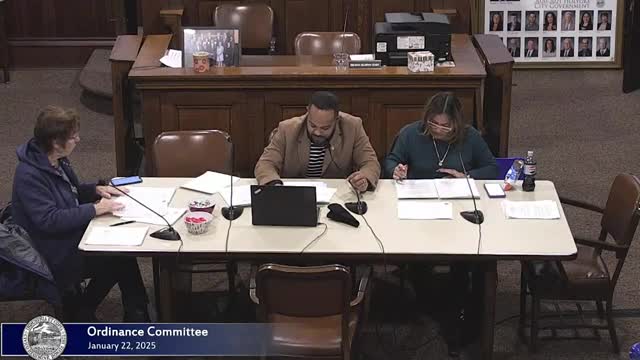Committee approves revised vacant-building fee tiers, asks legal to draft ordinance
Get AI-powered insights, summaries, and transcripts
Subscribe
Summary
Councilors advanced a proposal to scale Holyoke's vacant-building fee by building size and vacancy duration to generate revenue for a revolving fund for blight remediation; the committee requested legal form to take the fee schedule to full council.
The City Council committee voted to advance a revised vacant-building fee schedule that would scale fines by building square footage and length of vacancy and requested the law department prepare ordinance language for the full council.
Councilor Michael Sullivan presented the revised schedule, saying the change preserves the $500 fee for 1–3 unit dwellings but increases fees for larger and longer-vacant properties. "If you're above 3,000 square feet, and you're over 2 years, with no plan at all for rehab in front of the city, the fee would go to $6,000 ... above 50,000 square feet, the fee would go to $15,000," Sullivan said, explaining the tiers are intended to encourage owners to remediate or sell properties that have sat vacant and to grow the city's revolving fund to pay for demolition or rehabilitation.
Sullivan and other councilors described buildings that continue to pay the current flat fee as a burden on neighborhoods and public services; examples cited included former commercial properties that have been left vacant for years. Councilor Linda Bacon asked for a ballpark count of such properties; Sullivan estimated roughly 25 but said a precise tally would require research with the tax collector.
Committee members discussed the city's enforcement tools, including the Board of Health's authority to secure or board up unsafe buildings and the law department's ability to pursue reverter clauses and court orders. City Solicitor Jane Mantoleski said the city has legal authority to pursue demolition or court-ordered repair but lacks the budget to undertake large demolition projects in many cases.
Councilor Sullivan framed the fee changes as a revenue source for a revolving building fund to address blight and to better leverage enforcement tools. The committee voted to approve the fee schedule and request legal form to update the ordinance and to bring the measure to the full council for a vote.
